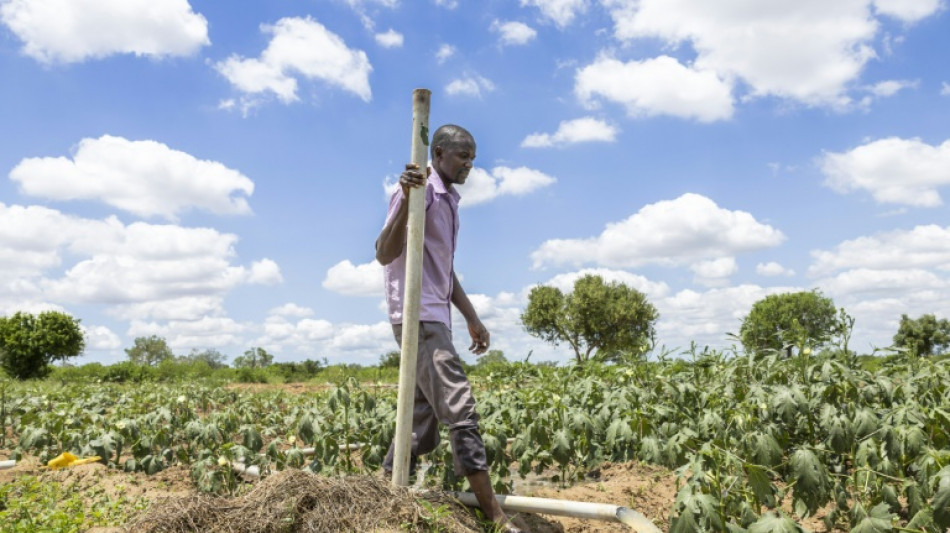
-
 American Shelton tops Khachanov to win first ATP Masters title in Toronto
American Shelton tops Khachanov to win first ATP Masters title in Toronto
-
Tokyo soars on trade deal relief as Asian markets limp into weekend
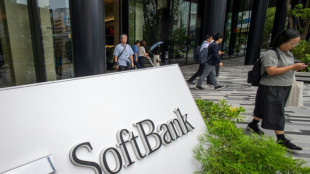
-
 New species teem in Cambodia's threatened karst
New species teem in Cambodia's threatened karst
-
Australian mushroom murderer accused of poisoning husband: police

-
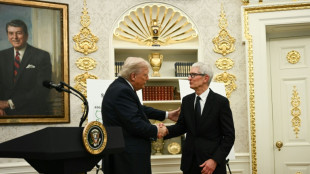 Solid gold, royal missives and Nobel noms: how to win Trump over
Solid gold, royal missives and Nobel noms: how to win Trump over
-
Canadian teen Mboko outlasts Osaka to win WTA Montreal crown

-
 Trump to host Armenia, Azerbaijan for historic 'Peace Signing'
Trump to host Armenia, Azerbaijan for historic 'Peace Signing'
-
Israeli airline's Paris offices daubed with red paint, slogans

-
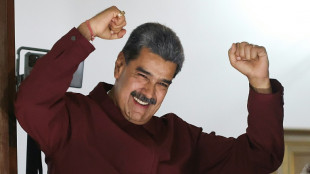 US raises bounty on Venezuela's Maduro to $50 mn
US raises bounty on Venezuela's Maduro to $50 mn
-
Lebanon cabinet meets again on Hezbollah disarmament

-
 France's huge wildfire will burn for days: authorities
France's huge wildfire will burn for days: authorities
-
Bolivia right-wing presidential hopeful vows 'radical change'
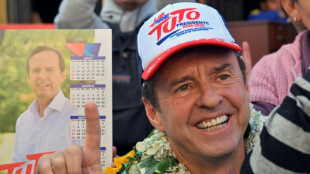
-
 Trump says would meet Putin without Zelensky sit-down
Trump says would meet Putin without Zelensky sit-down
-
Trump offers data to justify firing of labor stats chief
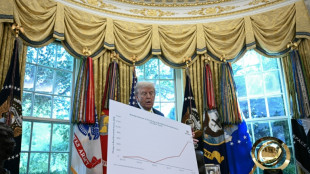
-
 Bhatia leads by one at PGA St. Jude, Scheffler five adrift
Bhatia leads by one at PGA St. Jude, Scheffler five adrift
-
Disney settles Trump-supporting 'Star Wars' actor lawsuit

-
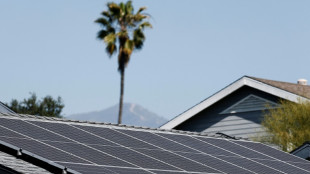 Trump moves to kill $7 billion in solar panel grants
Trump moves to kill $7 billion in solar panel grants
-
Venus Williams falls at first hurdle in Cincinnati

-
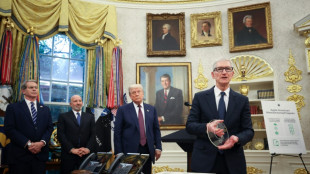 Mixed day for global stocks as latest Trump levies take effect
Mixed day for global stocks as latest Trump levies take effect
-
SpaceX agrees to take Italian experiments to Mars

-
 US judge orders temporary halt to new 'Alligator Alcatraz' construction
US judge orders temporary halt to new 'Alligator Alcatraz' construction
-
US uses war rhetoric, Superman to recruit for migrant crackdown

-
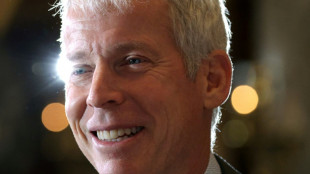 US to rewrite its past national climate reports
US to rewrite its past national climate reports
-
U can't pay this: MC Hammer sued over delinquent car loan

-
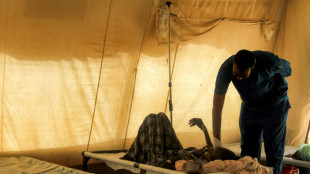 WHO says nearly 100,000 struck with cholera in Sudan
WHO says nearly 100,000 struck with cholera in Sudan
-
Huge wildfire in southern France now under control

-
 Kane scores as Bayern thump Spurs in pre-season friendly
Kane scores as Bayern thump Spurs in pre-season friendly
-
France strikes down return of banned bee-killing pesticide
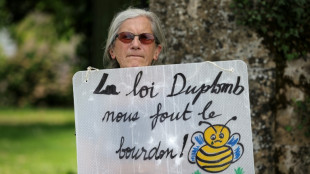
-
 Canada sends troops to eastern province as fire damage grows
Canada sends troops to eastern province as fire damage grows
-
OpenAI releases ChatGPT-5 as AI race accelerates
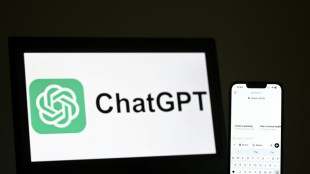
-
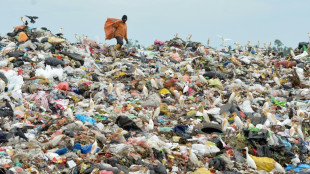 Plastic pollution treaty talks deadlocked
Plastic pollution treaty talks deadlocked
-
A French sailor's personal 'Plastic Odyssey'
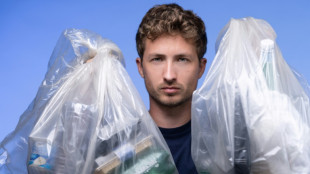
-
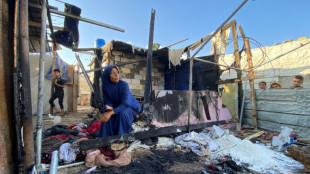 Netanyahu says Israel to control not govern Gaza
Netanyahu says Israel to control not govern Gaza
-
Partey signs for Villarreal while on bail for rape charges

-
 Wales have the talent to rise again, says rugby head coach Tandy
Wales have the talent to rise again, says rugby head coach Tandy
-
US partners seek relief as Trump tariffs upend global trade

-
 Five England players nominated for women's Ballon d'Or
Five England players nominated for women's Ballon d'Or
-
PSG dominate list of men's Ballon D'Or nominees

-
 Americans eating (slightly) less ultra-processed food
Americans eating (slightly) less ultra-processed food
-
Man Utd agree 85m euro deal to sign Sesko: reports

-
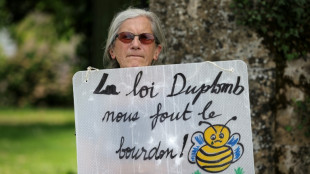 France to rule on controversial bee-killing pesticide bill
France to rule on controversial bee-killing pesticide bill
-
Germany factory output falls to lowest since pandemic in 2020

-
 Swiss to seek more talks with US as 'horror' tariffs kick in
Swiss to seek more talks with US as 'horror' tariffs kick in
-
Barcelona strip Ter Stegen of captain's armband

-
 Trump demands new US census as redistricting war spreads
Trump demands new US census as redistricting war spreads
-
'How much worse could it get?' Gazans fear full occupation
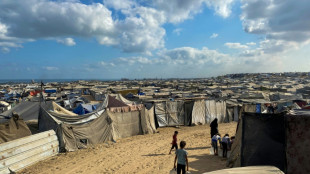
-
 France seeks to 'stabilise' wildfire raging in south
France seeks to 'stabilise' wildfire raging in south
-
Ski world champion Venier quits, saying hunger has gone

-
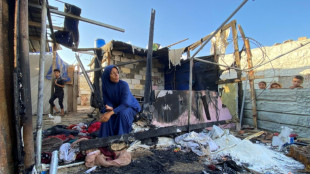 Israel security cabinet to discuss Gaza war plans
Israel security cabinet to discuss Gaza war plans
-
Deadly Indian Himalayan flood likely caused by glacier collapse, experts say
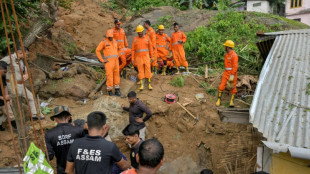
| RBGPF | -5.79% | 71.84 | $ | |
| RYCEF | -0.42% | 14.44 | $ | |
| VOD | -0.36% | 11.26 | $ | |
| CMSC | 0.04% | 22.96 | $ | |
| BCC | 0.32% | 83.19 | $ | |
| SCS | 0.06% | 16 | $ | |
| RELX | 1.03% | 49.32 | $ | |
| NGG | -0.31% | 72.08 | $ | |
| SCU | 0% | 12.72 | $ | |
| RIO | 1.12% | 60.77 | $ | |
| BCE | 2.23% | 23.78 | $ | |
| CMSD | -0.09% | 23.52 | $ | |
| AZN | 1.3% | 74.57 | $ | |
| GSK | 2.21% | 37.58 | $ | |
| JRI | 0.52% | 13.41 | $ | |
| BTI | 0.51% | 56.69 | $ | |
| BP | 0.91% | 34.19 | $ |

Can cash handouts replace aid? Kenya offers some answers
Three years ago, Thomas Kazungu Karisa was struggling to make ends meet as a petrol station attendant in the Kenyan county of Kilifi, when a sudden cash donation changed his life.
"My family often went to bed hungry, my children were sent home from school for unpaid fees and I was buried in debt," said Karisa, a father of five.
Now he beams at his lush farm blooming with okra, the result of a one-off donation of 110,000 Kenyan shillings (roughly $930 at the time) from a New York-based NGO, GiveDirectly.
He used the cash to lease a plot of land with two neighbours in his village of Milore, install an irrigation system and start farming.
He built up credit and bought two cows, as well as a chainsaw he rents out for 2,000 Kenyan shillings at a time.
"If they had given me food, it would have been long gone by now," Karisa told AFP.
"But with the money, I have been able to change my life."
GiveDirectly believes charities and NGOs should stop handing out things like food and school books, and start just sending people cash.
It has given donations to almost 1.5 million Africans, and has carried out 25 studies across the continent to measure the impact.
Fears the money would be misused or wasted were unfounded, it said. One Kenyan study found that families generated $2.50 for every $1 received.
"We can show evidence of cash having reversed domestic violence, improved child mortality, improved business outcomes, made families healthier, children accessing more education," said Caroline Teti, GiveDirectly's vice president for risk in Africa.
- 'Poverty doesn't wait' -
With the United States and other Western countries sharply cutting aid in recent months, GiveDirectly believes cash handouts offer a way to do more with less.
Traditional aid systems spend vast amounts on planning, supplies, transport, offices and expensive Western staff.
A 2022 study by the University of Washington found that back-office costs in the United States ate up 30 to 60 percent of budgets for global health projects. Much more was lost getting supplies to the final endpoint.
GiveDirectly still has overhead costs, but says 80 percent of donations goes directly into the hands of recipients.
"Cash is not a magic bullet," Teti said. Governments are still needed for fundamentals like schools, health facilities and electricity.
But for improving livelihoods of the poor, cash can be effective and fast.
"Poverty doesn't wait," Teti said. "One year is enough for a girl to drop out of school... for a mother or child to die."
Other aid agencies have embraced the concept over the past 10-15 years as hundreds of studies have shown its efficacy.
The Norwegian Refugee Council now gives 20 percent of its aid in cash, but could easily give as much as 45 percent, said Tariq Riebl, its strategy and innovation director.
Even USAID -- before being gutted by the administration of President Donald Trump -- finally backed the use of cash payments in a policy paper last October, after years of internal pushback.
The only real obstacle, Riebl told AFP, is "latent conservatism" in the aid sector: "There's something more comforting about handing over a kit of non-food items or a sack of rice, than giving cash."
- 'Dilemma' -
Cash is not suitable everywhere, such as war zones where markets barely exist, or when specialist items are needed like ID cards for refugees, or HIV medication.
Doctors Without Borders (MSF), a medical organisation, has twice used cash transfers when markets collapsed: in Syria in the mid-2010s and recently in Sudan's Darfur region.
But they were exceptions.
"Cash for healthcare remains very rare," said MSF's advocacy head, Tarak Bach Baouab. "We want to be sure of the quality of our programmes so we prefer sourcing the drugs and equipment ourselves."
Nonetheless, there is a dilemma.
"We're not there to tell people what to do with their lives. It's not very empowering and it creates a lot of dependency," Baouab said.
"But if you give cash to a family and they don't spend it in the right way, then we might see health outcomes diminish."
GiveDirectly sees this as a selling point for giving cash wherever possible.
"Lives can only be changed by the people who are living that life," Teti said.
"We are giving them dignity and we are giving them choice."
A.Suleiman--SF-PST

